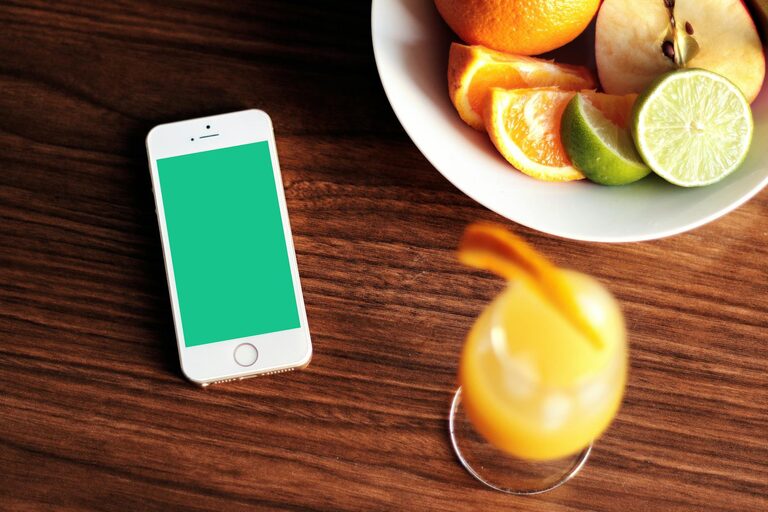
In today’s digital age, smartphones have become an essential part of our daily lives. They keep us connected, informed, and entertained. However, excessive phone use can sometimes lead to stress, distraction, and even disrupt our sleep. Developing healthy phone habits is key to maintaining a balanced lifestyle and improving both your well-being and productivity.
In this post, we’ll explore practical strategies to help you build mindful and healthy interactions with your phone. Whether you want to cut down on screen time or simply create better boundaries, these tips can guide you toward a healthier relationship with your device.
Why It’s Important to Maintain Healthy Phone Habits
Smartphones offer many benefits but can also lead to challenges such as:
– Decreased focus: Constant notifications and multitasking reduce concentration.
– Sleep disturbances: Using phones late at night can interfere with quality rest.
– Increased stress: Overexposure to social media and news can cause anxiety.
– Weakened social connections: Excessive screen time may reduce face-to-face interactions.
By establishing healthier phone habits, you can reclaim your time, reduce stress levels, and improve your mental and physical health.
How to Build Healthy Phone Habits
1. Set Specific Phone-Free Times
Designate certain periods during the day when you will completely avoid using your phone. Consider:
– Morning routines: Avoid checking your phone right after waking up.
– Meal times: Keep phones away to enjoy food and company fully.
– Before bedtime: Stop using phones at least 30 minutes before sleep to promote better rest.
2. Use Do Not Disturb and Notification Controls
Notifications can be a constant distraction. Take control by:
– Turning on Do Not Disturb mode during focused work or relaxation.
– Disabling non-essential app notifications.
– Customizing alerts to only receive important calls or messages.
3. Create App Boundaries
Many apps are designed to capture your attention. You can create boundaries by:
– Limiting daily usage with built-in screen time tools available on most smartphones.
– Organizing apps by priority and moving distracting ones to less accessible folders.
– Deleting apps that often lead to unnecessary scrolling or anxiety.
4. Practice Mindful Phone Use
Being mindful means using your phone intentionally instead of out of habit. Try to:
– Ask yourself why you are reaching for your phone: Is it necessary or just boredom?
– Focus fully on one task or app at a time instead of multitasking.
– Take regular breaks from screens throughout the day.
5. Replace Phone Time with Other Activities
Find enjoyable alternatives to screen time such as:
– Reading a book or magazine.
– Engaging in hobbies like cooking, crafting, or exercising.
– Spending quality time with friends and family in person.
– Going for walks or spending time outdoors.
6. Set Physical Boundaries
Sometimes it helps to remove the device from your immediate environment:
– Leave your phone in another room while working or relaxing.
– Avoid using your phone in bed.
– Use an alarm clock instead of relying on your phone for waking up.
7. Regularly Review and Adjust Your Habits
Maintaining healthy phone habits is an ongoing process. Take time to:
– Monitor your screen time and mood regularly.
– Reflect on which habits are working and which need improvement.
– Adjust your rules as needed to find the right balance.
Tools and Features to Support Healthy Phone Habits
Most smartphones offer features designed to support balanced usage:
– Screen Time (iOS) / Digital Wellbeing (Android): Track app use and set limits.
– Focus Mode: Temporarily pauses distracting apps.
– Grayscale mode: Changes the screen to black and white to reduce appeal.
– Wind Down: Gradually dims your screen and enables Do Not Disturb near bedtime.
Experiment with these features to find what helps you maintain control over your phone use.
Final Thoughts
Smartphones are powerful tools, but managing how we use them is crucial to staying healthy and balanced. By setting clear boundaries, controlling distractions, and engaging more in the offline world, you can develop phone habits that support your well-being and productivity.
Start small by trying one or two strategies and build from there. Over time, these mindful phone habits can make a meaningful difference in how you live and feel each day. Remember, a healthy relationship with technology doesn’t mean giving it up entirely—it’s about using it in ways that enrich your life.
—
We hope these tips inspire you to create a healthier phone routine. What healthy phone habit will you try first? Share your thoughts in the comments!



